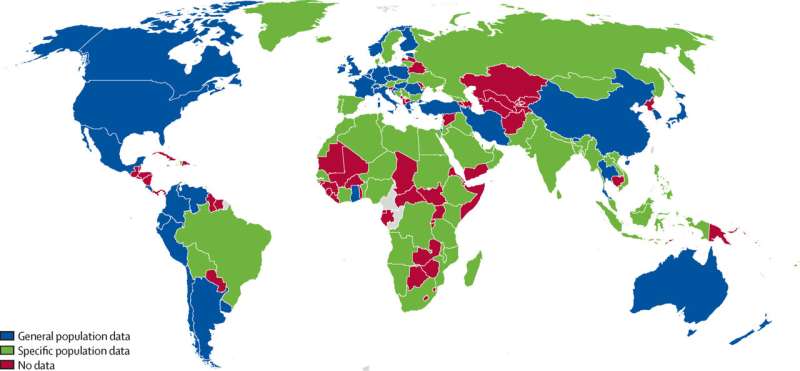This article has been reviewed according to Science X's editorial process and policies. Editors have highlighted the following attributes while ensuring the content's credibility:
fact-checked
peer-reviewed publication
trusted source
proofread
Call for sleep health to be put on global public health agendas

Scientists from around the world have issued an urgent call to action for governments to incorporate sleep health into public health policies, with research indicating it's as important as nutrition and physical activity.
"Sleep health influences every facet of human function and is essential to our heart, immune, brain, and mental health," Professor Peter Eastwood, co-senior author on a paper published in The Lancet Public Health and Deputy Vice Chancellor Research and Innovation at Murdoch University, said.
"However, across the globe, and particularly in developing countries, national public health agendas rarely consider sleep. It's vital that changes."
Research shows that getting less than seven hours sleep each day overlaps with poor general health, poor mental health, poor brain health, including increased stroke, obesity, and high blood pressure.
"Inadequate sleep also has huge economic costs related to its impact on health, well-being, safety and productivity," Eastwood said.
A recent analysis of the costs of inadequate sleep in Australia estimated a total financial cost of $28 billion per annum.
"As with so many health and economic challenges, poor sleep health disproportionately affects socioeconomically disadvantaged groups."
"So, it's imperative that we address equity in sleep health across countries, groups, and individuals with lower socioeconomic status, minority racial and ethnic groups, and sexual minorities."
"Sleep should be promoted as an essential pillar of health, equivalent to nutrition and physical activity, to lift health across the global population."
Authored by an international group of experts on behalf of World Sleep Society's "Global Sleep Health Task Force" the opinion essay, recommended three concrete actions for governments, researchers and other stakeholders:
- Educate: promote sleep and circadian health education and awareness
- Research: collect and centralize standard sleep and circadian data in every country
- Public Policy: include sleep health initiatives to advance public health agendas
"Despite major advances in our understanding of sleep, the importance of sleep health is still under-recognized by most national public health agendas and educational institutions around the world," Eastwood said. "We know that sleep is critical to numerous biological functions that optimize adaptation and function throughout the body, from genes to behavior, so we need to treat it that way."
Efforts are needed to ensure equity and inclusivity for all people, particularly those who are most socially and economically vulnerable, and historically excluded.
"The health benefits of good sleep and the adverse consequences of sleep deficiency are abundantly clear," Eastwood said. "Although more global data will refine our knowledge base, we know enough to act now, leveraging better global sleep to achieve better global health, especially among disadvantaged groups."
More information: Diane C Lim et al, The need to promote sleep health in public health agendas across the globe, The Lancet Public Health (2023). DOI: 10.1016/S2468-2667(23)00182-2




















